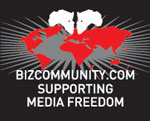The South African Press Council yesterday, Thursday, 18 August 2011, released a 100-page report in which it endorses media self-regulation and proposes major changes to the SA press code and the functioning of the press ombudsman's office.
Restructured
The report recommends, among others, that the Press Council be restructured to include:
- a director who will concentrate on public engagement around press standards and media freedom
- a public advocate who will assist members of the public to formulate their complaints, assist in negotiating with a publication and may assist complainants during hearings
- the ombudsman who will arbitrate matters that are not resolved through negotiation
- and a chair of appeals who will deal with appeals.
The report suggests that legal representation should not be allowed during hearings in order to keep proceedings informal and inexpensive.
Complainants and respondents are, however, able to take legal advice ahead of hearings and lawyers may assist them in drawing up their papers.
"The new structure would facilitate a more proactive approach and distinguishes between the council's various functions: mediation, arbitration, appeals and public engagement," the press council said in a statement. "In the public advocate, it creates a position whose function is unambiguously on the side of the reading public."
"Maintain the press's legitimacy"
Speaking at the Constitution Hill in Johannesburg, Hoosain Karjieker (@HoosainK), the newly elected president of Print Media SA (PMSA), said: "Our aim is to maintain the press's legitimacy and to continue keeping its content from political and government interference. Therefore, we need to put our house in order."
The report, titled Review - Press Council of South Africa August 2011, rejects the notion of imposing fines on newspapers, saying that the continued use of peer pressure and the publication of findings were the best forms of leverage.
It also said that adverse rulings had a large impact on a publication - primarily the damage to its reputation, the loss of valuable space to accommodate the apology and the ruling, and the time and effort of the editorial staff responding to the complaint.
Amendments to press code
Finally, it suggests amendments to the press code, having perused 100 codes from around the world, including 25 from Africa, as well as public input.
Media rights campaigner Raymond Louw, who also sits on the South African National Editors' Forum (SANEF) media freedom committee, said the changes represent the most extensive exercise conducted by the press council in this country and that it is an ongoing process.
Copies of the report were then handed over to representatives of various print media bodies, including the Magazine Publishers' Association of SA (MPASA), the Forum of Community Journalists, SANEF and the Association of Independent Publishers of SA.
Also be considered by Press Freedom Commission
The council said the report will also be considered by the Press Freedom Commission (PFC).
SANEF chairman Mondli Makhanya said that, contrary to criticism accusing the media that it is out of touch with people, the SA media has a strong umbilical cord with communities.
"Yes, we do make mistakes and sometimes make incorrect decisions," he said. "Self-regulation is important because it helps keep the state's hands out of the media. We are trying hard to improve it and give it more teeth."
For more:














































